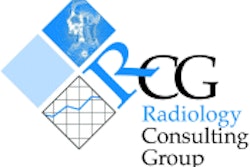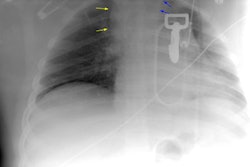Relief may be in sight for overworked residents. The Accreditation Council for Graduate Medical Education (ACGME) announced new guidelines Thursday that would limit the number of hours worked by medical residents, as well as require closer supervision by program directors.
The rules, designed to reduce the risk of errors committed by fatigued doctors, will limit the resident work week to 80 hours, with a minimum of 10 hours off between shifts and one day off per week. In addition, faculty members will be required to formally assess residents for signs of sleep loss and exhaustion.
The new rules will take effect in summer 2003. They are the first to apply to all specialty training programs accredited by the ACGME -- about 7,800 in the U.S. That means hospitals could jeopardize their accreditation if they don’t comply with the regulations, and could potentially lose Medicare and Medicaid funding.
Whether medical institutions will honor the new rules remains to be seen. Some specialties, such as emergency medicine, had limits placed on resident hours back in the 1980s, but the ACGME has done little to enforce them, according to comments made to the New York Times by Dr. Ruth Potee, president of the Committee of Interns and Residents union. One of the union's main criticisms of the rules is that they allow hospitals to request an increase in hours up to10%, "if they can provide a sound educational rationale," according to the document posted on the ACGME Web site (NYT, June 13, 2002).
Dr. David Leach of the ACGME told the Times that the council would vigorously enforce the new rules and would rely on confidential Internet surveys of residents to determine which programs are in violation.
Also unresolved is how the new rules will affect a class-action lawsuit brought on behalf of 20,000 residents against the residency matching program. The suit, filed in Washington, DC, in May, is pending. It states that medical organizations and private practices manipulate the National Residency Matching Program in order to consistently underpay and overwork residents.
The new standards have won the approval of the Association of American Medical Colleges. In a written statement, the AAMC said it "will work with our members to ensure they continue to closely supervise the learning environment of residents and remain committed to maintaining adequate rest and time-off as high priorities of their graduate medical education programs."
The ACGME is currently accepting public comment on the new rules. All responses must be submitted by August 1, 2002 to [email protected].
By Shalmali PalAuntMinnie.com staff writer
June 14, 2002
Related Reading
Residents file suit against U.S. matching program, May 8, 2002
ARRS president urges rads to take stock in the future, April 29, 2002
Life after residency: Making the transition to practice, May 14, 2001
Copyright © 2002 AuntMinnie.com



















